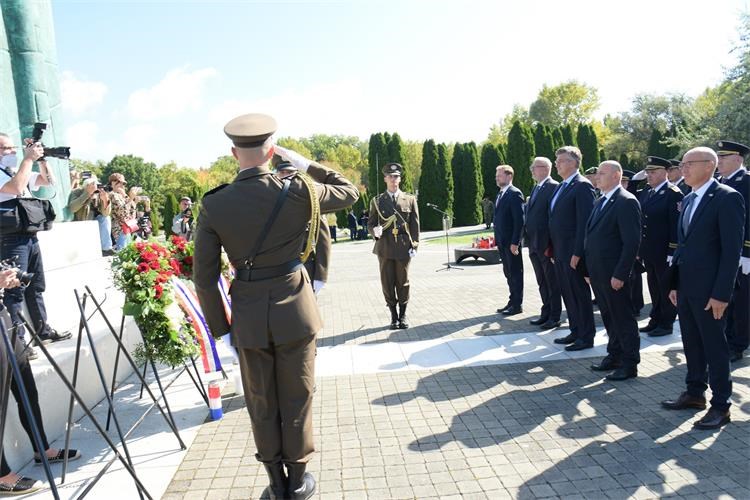


Vukovar was heroically defended in the 1991 battle for three months, after which its defence lines were penetrated and the city fell into the hands of Serb paramilitaries and the Yugoslav People's Army.
The ceremony in Vukovar was attended by numerous defenders and wartime commanders, led by the last commander of the city's defence forces, Branko Borković, President Zoran Milanović and Parliament Speaker Gordan Jandroković's envoys, the heads of Vukovar-Srijem and Osijek-Baranja counties, Vukovar Mayor Ivan Penava, and government members, led by Prime Minister Andrej Plenković.
"More than 30,000 troops, armed with 600 tanks, 500 armoured vehicles and 180 howitzers were deployed to seize Vukovar which was defended by some 6,000 defenders and volunteers. In that 'David and Goliath' battle, by keeping the enemy engaged in the area of Vukovar, Croatian defenders gave an additional three months to the rest of Croatia to consolidate its armed forces," Plenković said at the commemoration.
Battle was of crucial importance for maturing of Croatian democracy
Thanking defenders for what they did in 1991 by defending Vukovar and Croatia, Plenković said the Battle of Vukovar was a decisive battle of the Homeland War that also had a crucial role in the maturing of the Croatian democracy.
"Even though the suffering in the Homeland War is still a painful memory, notably the fate of 1,858 people gone missing, the victorious Croatia extended a hand of reconciliation and trust, respecting the rights of ethnic minorities, including the Serb minority. Croatia remains committed to the values which helped defend Croatia's freedom and democracy in the Homeland War," said Plenković, underling the need to continue with efforts to shed light on the fate of all missing persons, punish war criminals, secure adequate satisfaction for former inmates of prison camps, and promote the truth about the Homeland War, notably among children and young people.
Speaking of the government's responsibility for the revitalisation of Vukovar and the entire eastern Slavonia, Plenković said that Vukovar had been named a place of special respect, the Vukovar Hospital had become a national memorial hospital, 18 November, the day of the city's fall, had been declared a national holiday, and the Croatian Army had returned to Vukovar while the prospect of bringing to justice those responsible for war crimes had improved.
Text: Hina